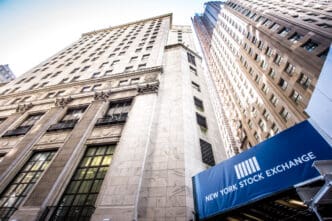KEY POINTS
President Donald Trump on Tuesday publicly called on Goldman Sachs CEO David Solomon to hire a new economist, lashing out after the investment bank published a report predicting that American consumers will soon bear the brunt of costs from his administration’s tariffs. The sharp rebuke, delivered on Truth Social, escalates the White House’s conflict with mainstream economic analysis over the real-world impact of its trade policies.
Trump Takes Aim at Wall Street Giant
In a direct and personal post, President Trump dismissed the bank’s analysis and accused it of failing to acknowledge the benefits of his tariff strategy. “Tariffs have not caused Inflation, or any other problems for America, other than massive amounts of CASH pouring into our Treasury’s coffers,” he wrote. “David Solomon and Goldman Sachs refuse to give credit where credit is due.”
The president then took a personal jab at the CEO, who is also known for his side career as a DJ. “I think that David should go out and get himself a new Economist or, maybe, he ought to just focus on being a DJ, and not bother running a major Financial Institution,” President Trump added.
The Economic Analysis Behind the Feud
While President Trump did not cite the specific research, his comments followed a weekend report from Goldman Sachs economists that detailed the escalating cost of tariffs for U.S. households. The analysis estimated that Americans had “absorbed 22% of tariff costs through June,” but projected that share would surge to 67% by October if the new duties follow historical patterns.
The bank’s chief economist, Jan Hatzius, is one of the most influential economic voices in Washington and on Wall Street. Hatzius, an author of the report, has met with officials like Federal Reserve Chair Jerome Powell and correctly predicted in 2023 that the U.S. economy would avoid a recession, a forecast that ran counter to the prevailing consensus at the time.
Goldman Sachs declined to comment on the president’s remarks.
Tariff Warnings vs. Tame Inflation
The forecasts from Hatzius’s team are not an outlier. They share similarities with warnings from other leading financial institutions that consumers will eventually experience tariff-related sticker shock as companies pass on the increased costs.
However, despite a series of higher tariffs enacted by President Trump over the past few months, that impact has not yet appeared in top-line inflation figures. New data published Tuesday from the Consumer Price Index showed that consumer prices rose just 0.2% in July, keeping the annual inflation rate steady at 2.7%.
The public spat highlights a fundamental disagreement between the White House’s economic narrative and the analyses of many financial experts. It sets the stage for a continued political and economic debate over who ultimately pays the price for the administration’s assertive trade agenda.








